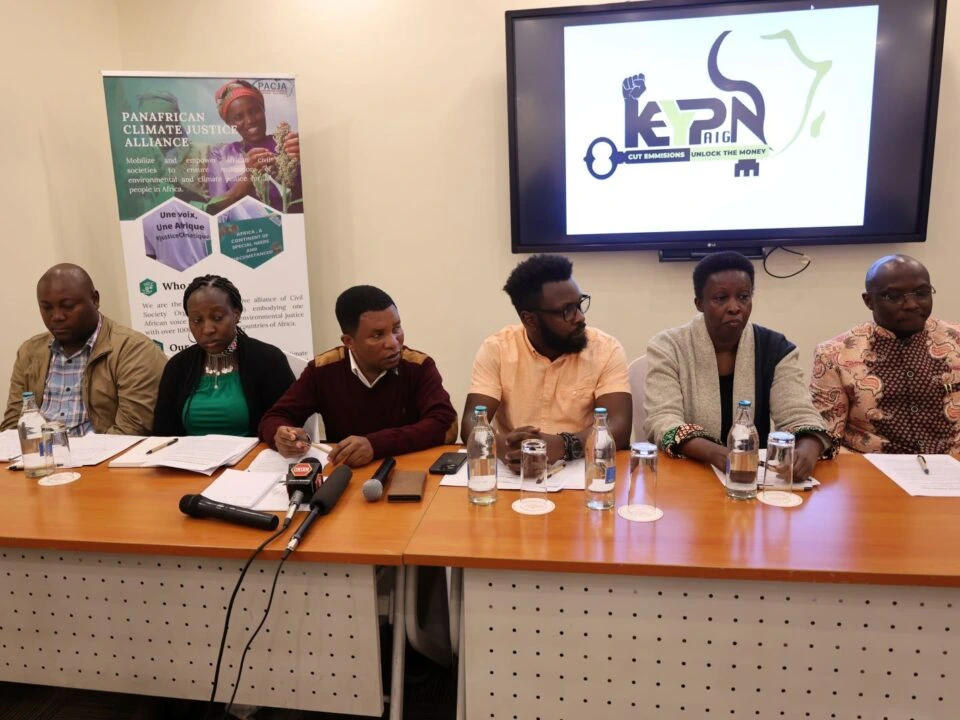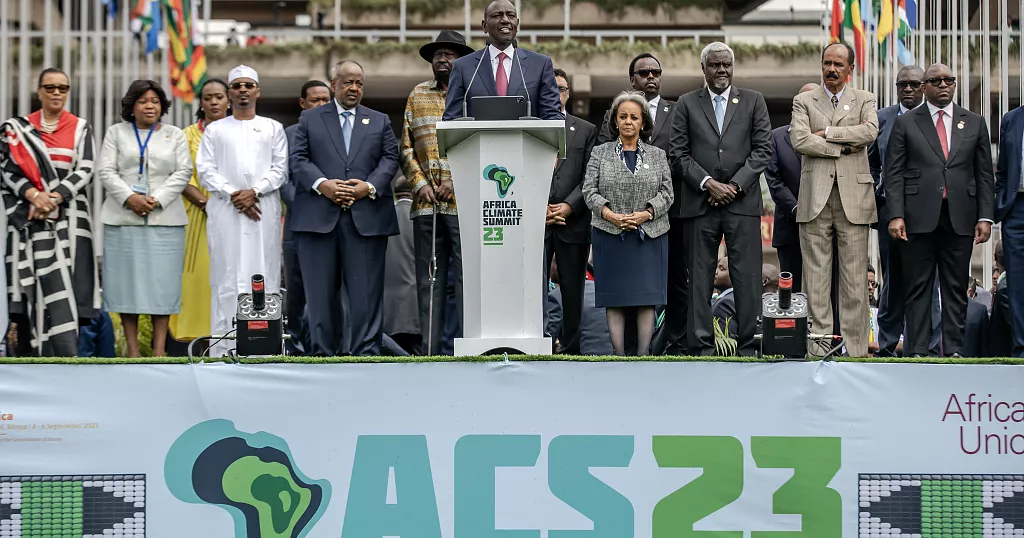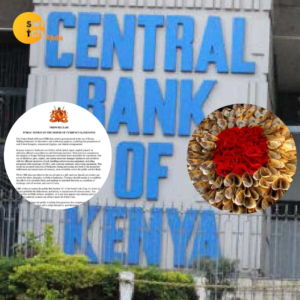The Africa Climate Summit -Non-State Actors’ Committee (NSAC) welcomes the Declaration of the Africa Climate Summit, issued by the Heads of States on September 6, 2023, as a positive step towards a more ambitious, fair, equitable, ecologically just and inclusive global response to the climate crisis.

However, the group is still concerned that the Summit missed an opportunity to have a strong African position that established the route to addressing the climate crisis.
“We express our disappointment that the Declaration does not prioritize adaptation as a critical concern for Africa and leaves it a mere peripheral issue, ” said the group during a press conference on Friday, 8th September, 2023.
“We would like to remind the Heads of States that adaptation is not only crucial for survival but also a matter of justice. Africa is one of the regions that are most affected by climate change, even though it contributes the least to its causes.”
Another issue that disappoints the non-state actors is that the Declaration does not adequately address the emotive issue of just transition, which is crucial for ensuring that no one is left behind in the shift to a low-carbon economy.
“We note that the Declaration only mentions just transition once without any details or commitments on how we should define it in our own narratives and perspectives, and how it will be implemented, ” a member of the group mentions.
Read Also: UAE to Provide 4.5Billion dollars to Africa for Clean Energy
In addition, the Summit’s failure was that it did not pronounce itself on how African leaders will collectively work together to exert pressure on developed countries to deliver on the financial commitments previously made by the historical emitters.
The failure to advance for framework for pushing for a funding mechanism to fund some of the critical climate-related interventions that protect those most affected by inequality and discrimination who are often children, youth and women, was another waterloo for the Summit’s Declaration.
Disappointingly, the Declaration’s Call to Action does not also reflect the recognition of the value of nature and biodiversity. Consequently, the NSAC urges the Heads of State to include more specific actions and targets in their national and regional plans and policies for biodiversity conservation and restoration. Additionally, the NSAC calls on them to ensure that they integrate nature-based solutions into their mitigation and adaptation strategies.
As we head to COP28, NSAC insists the following should be noted:
1. Developed countries should fulfil their historical responsibility and provide adequate and predictable finance, technology transfer, and capacity building to support adaptation, mitigation, and loss and damage in Africa.
2. Reiteration of the position on the rejection of the promotion of Carbon Markets that are not responsive and do not serve the climate justice imperatives for Africa. We further urge for continued dialogue in the spirit of closing knowledge gaps on Carbon Markets that are apparent, at all levels.

3. African leaders commit to a just and equitable transition to renewable energy, ensuring that energy access is prioritized for the poor and marginalized and that community ownership and participation are guaranteed.
4. Urge African leaders to stand by the principles of climate justice, human rights, gender equality, and intergenerational equity in all climate policies and actions.
Subscribe to Switch TV for more content.
Moreover, despite of these disappointments mentioned, the NSAC is optimistic that this Declaration is a forward step towards accomplishing more ambitious and comprehensive climate action in Africa and globally.
The NSAC is fully prepared to collaborate with the Heads of State and other stakeholders in the implementation of the Africa Climate Summit’s Declaration and in collectivizing Africa’s position towards COP28.
















